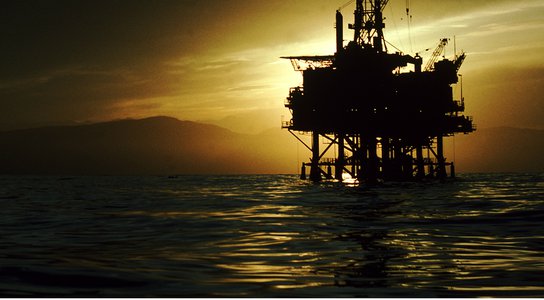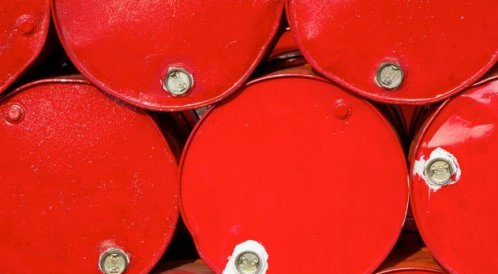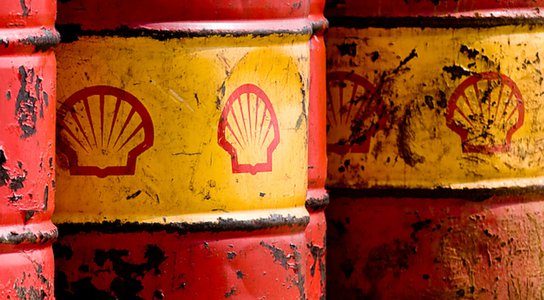Royal Dutch Shell, the world’s second largest oil company, has been put under formal investigation by the Milan Public Prosecutor’s office for “international corruption” offences relating to a deal for oil block OPL 245 in Nigeria, according to reports in the Italian press this morning.
The headquarters of the Anglo-Dutch company in The Hague were, according to Italian newspaper Corriere Della Sera, raided on the 17th of February by 50 officers from the Italian financial police and their Dutch colleagues, with the raid lasting through the night. The Dutch home of former Nigerian Attorney General Mohammed Bello Adoke was also searched.
Global Witness, together with Nigerian activist Dotun Oloko and anti-corruption campaigners at Re:Common and Corner House have been investigating the OPL 245 deal for several years. In June 2015 they filed a complaint with the Milan Public Prosecutor giving evidence of Shell’s role in the deal. Today’s development presents a real threat to Shell’s shareholders who could see the value of their investment disappear, and the company’s reputation damaged as a result of any conviction for complicity in dodgy dealings.
“Shell and Eni have always denied knowledge of the corruption at the heart of this deal, but evidence we have published shows otherwise. The news of an investigation into Shell shows that their role played in this deal may backfire on them. Shell and Eni exposed their investors to massive risks and have been tainted by this theft from Nigerian citizens.” said Simon Taylor, a Director of Global Witness
A Global Witness investigation exposed that when OPL 245 was sold in 1998 for US$20m – a fraction of its value now – it went to Malabu Oil & Gas, a company secretly owned by the then Oil Minister, Dan Etete. The block was then passed on to Shell and Eni in 2011, with the Nigerian government acting as middleman, for US$1.1bn. This sum is equivalent to 80% of the country’s 2015 health budget, but it never reached state coffers.
Shell and Eni have always denied that they knew the money would ultimately go to Etete, despite evidence from Global Witness showing otherwise.
The Nigerian House of Representatives in 2014 called for the deal to be cancelled and declared it “contrary to the laws of Nigeria”.
“The age of accountability is dawning with this news. Fueling corruption in Nigeria through shady deals like that for OPL 245 will now have consequences,” said Dotun Oloko, a Nigerian anti-corruption campaigner.
Eni has already been formally put under investigation by the office of the Public Prosecutor of Milan which has named Dan Etete, Eni and its current and former CEOs as suspects. The UK’s Proceeds of Corruption Unit within the Metropolitan Police began investigating money laundering connected to the case in June 2013 under “Operation Zaphod”, however the investigation was discontinued in 2015 due to lack of further evidence becoming available from Nigeria at the time. US authorities also participated in tracing funds connected to the deal. US$190m paid by Shell and Eni for OPL 245 has been frozen in accounts belonging to Etete and middlemen in the UK and Switzerland.
“This is very significant, the British authorities now have questions to answer about why they dropped their side of the investigation and failed to restrain funds when we originally asked them to, which allowed US$110m to leave the UK until it was restrained in Switzerland.” said Nicholas Hildyard of Corner House.
Antonio Tricarico of Re:Common said “This news comes as a welcome development which has been long overdue since only Eni has been under investigation for this deal in which both Shell and Eni took equal part. It is vital that any companies and individuals involved are held accountable for this corrupt deal.”
In a statement sent to journalists today a Shell spokesperson said “We can confirm that representatives of the Dutch Financial Intelligence and Investigation Service (FIOD) and the Dutch Public Prosecutor recently visited Shell at its headquarters in The Hague. The visit was related to OPL 245, an offshore block in Nigeria that was the subject of a series of long-standing disputes with the Federal Government of Nigeria. Shell is cooperating with the authorities and is looking into the allegations, which it takes seriously.
Shell attaches the greatest importance to business integrity. It’s one of our core values and is a central tenet of the Business Principles that govern the way we do business. All employees are expected to uphold these principles and failure to do so will result in consequences up to and including dismissal.”
Shell has insisted that they did not pay Malabu and in a response to a request for comment from Global Witness in April 2015 said “We do not agree with the premise behind various public statements made by Global Witness about Shell companies in relation to OPL 245”.
/ ENDS
Contacts
-
Oliver Courtney
Notes to editor:
1. A briefing on the background to the story “Shell And Eni's Misadventures In Nigeria” is available at https://www.globalwitness.org/en/campaigns/oil-gas-and-mining/shell-and-enis-misadventures-nigeria/
2. Global Witness published leaked emails between Eni and Shell officials conspiring to arrange the deal for OPL 245 in December 2015 at https://www.globalwitness.org/en/press-releases/leaked-emails-show-how-shell-and-eni-conspired-hide-payment-former-oil-ministers-company-corrupt-opl-245-deal/
3. The Securities and Exchange Commission is currently considering a final rule for Dodd Frank Section 1504 which will help bring payments to governments including in deals like the one for OPL 245 into the public domain. Similar laws in the European Union, Norway and Canada have been implemented; including the US these rules will cover two thirds of the world’s largest 200 extractive companies by market cap.
You might also like
-
Briefing Shell and Eni's Misadventures in Nigeria
In 2011, Shell and Eni paid US$1.1bn for one of West Africa’s largest oil fields, situated off the coast of Nigeria, but the money did not benefit the country’s citizens.
-
Blog post Ten questions for Eni about OPL-245 – but will we ever know the answers?
Last week, Prime Minister Renzi of Italy said that reporting about a major case of alleged corruption should not be allowed to endanger jobs or economic policies.
-
Blog post Do investors know what Shell is up to?
We campaigners are idealistic. But that doesn’t mean our arguments don’t make business sense